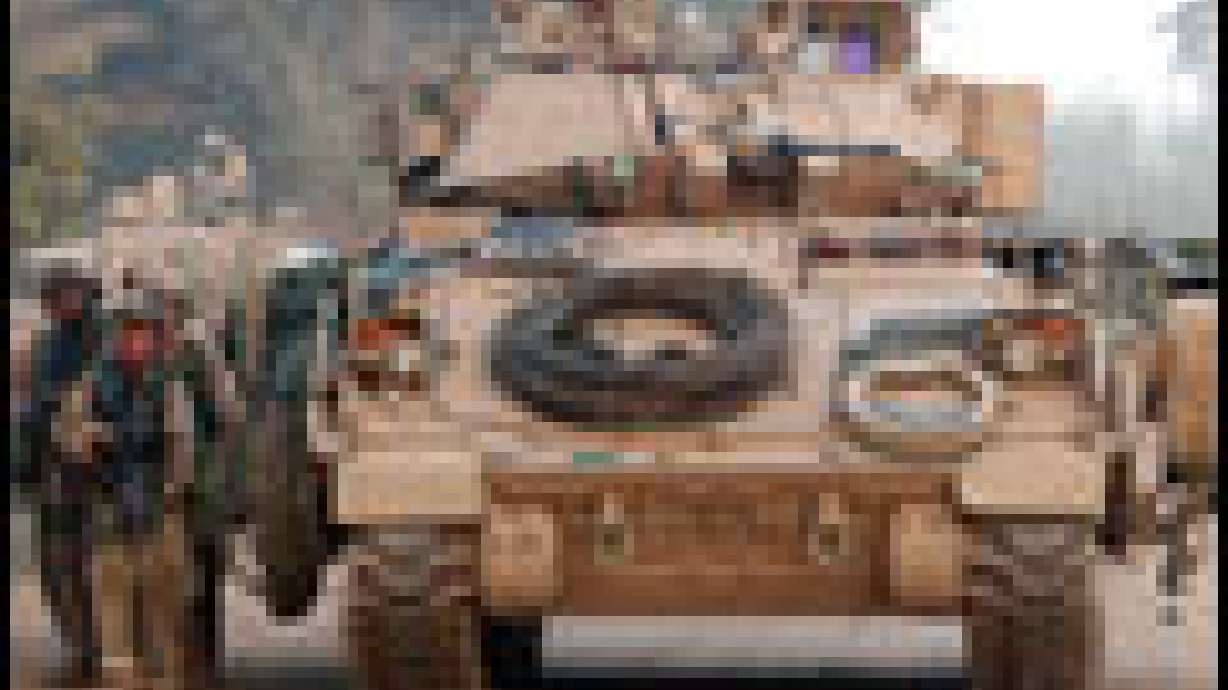Estimated read time: 3-4 minutes
This archived news story is available only for your personal, non-commercial use. Information in the story may be outdated or superseded by additional information. Reading or replaying the story in its archived form does not constitute a republication of the story.
WASHINGTON (AP) -- Fierce fighting and air strikes have completely destroyed the ability of Iraq's regular army and Republican Guard to mount conventional fighting, and no major military forces remain in the country, the Pentagon said Friday.
Though parts of forces and pockets of resistance remain, military officials were detecting no indications of any command and control ability on the part of Saddam Hussein's forces, nor any communication between remnants of forces, a Defense Department official said.
"There is no question the regime has lost control and that represents a good turning point for the people of Iraq," presidential spokesman Ari Fleischer said. "The regime is gone."
He cautioned, however, there may be tough fighting before Iraq is secured. "There may be more wounded, more dead and that tempers the president's reaction."
The assessment follows the Pentagon's aggressive targeting Thursday of remaining Iraqi army units in the northern part of the country.
"They are the last significant formations on the battlefield that we're aware of," Maj. Gen. Stanley McChrystal, vice director of the Pentagon's Joint Chiefs of Staff, told a Pentagon new conference Thursday.
He said the Iraqi forces' capability has dropped significantly "both from casualties and from people just leaving the battlefield."
On Friday, officials said that Ba'ath Party officials had either fled or gone underground and that there were no clues on the whereabouts of Saddam, his sons or any other regime leadership.
A Pentagon official said there were a few thousand Special Republican Guard remaining in the north, including in the area of Tikrit and Bayji some 25 miles north, but "no obvious significant forces in Tikrit," Saddam's birthplace and a spot where some of his remaining backers are believed to be taking refuge.
At U.S. Central Command headquarters in Qatar, officials said they had evidence that broken units and stranded soldiers were "coalescing" in the Tikrit area trying to make a last stand.
Though there is no major U.S. ground force in the north of Iraq, coalition airstrikes have been pounding the area regularly and coalition special forces have infiltrated the city, officials have said.
Meanwhile, U.S. military forces were working to cut off traffic between Iraq and Syria, which Defense Secretary Donald H. Rumsfeld has accused repeatedly of helping Saddam's regime.
American special operations forces have set up roadblocks along routes to Syria and are searching for fleeing members of the Iraqi regime or fighters and equipment coming in from Syria, a military official said. U.S. aircraft are also watching the routes, and they attacked Iraqi positions near the Syrian border Thursday.
Rumsfeld has accused Syria of shipping night vision goggles and other unspecified military equipment to Iraq and receiving fleeing officials of Saddam's regime or their relatives. He warned Damascus to stop doing both.
"Senior regime people are moving out of Iraq into Syria, and Syria is continuing to send things into Iraq," Rumsfeld said Wednesday. "We find it notably unhelpful."
Deputy Defense Secretary Paul Wolfowitz echoed those sentiments Thursday in an appearance before the Senate Armed Services Committee.
"The Syrians are behaving badly," he told senators. "They need to be reminded of that and if they continue then we need to think about what our policy is with respect to a country that harbors terrorists, or harbors war criminals, or was in recent times shipping things to Iraq."
Syrian officials have denied sending military goods into Iraq but they have been silent on whether they are helping Iraqi officials escape. Syria, which joined in the coalition to eject Iraq from Kuwait in the 1991 Gulf War, has strongly criticized the U.S.-led invasion of Iraq.
(Copyright 2003 by The Associated Press. All Rights Reserved.)








